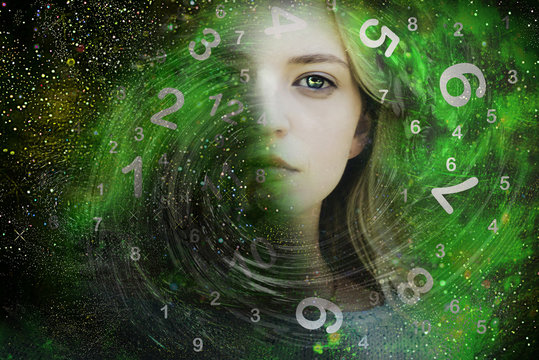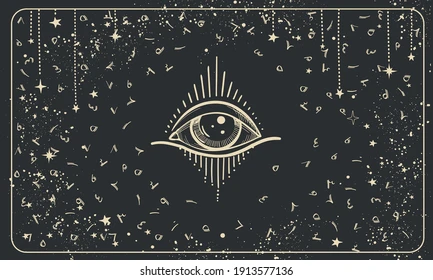
The Enigmatic World of Kabbalah Numbers
Few traditions possess the captivating allure and profound depth of Kabbalah. Rooted in ancient Jewish mysticism, Kabbalah is a labyrinthine system of spiritual wisdom that seeks to unveil the secrets of the universe, the nature of existence, and the mysteries of the Divine. At the heart of this enigmatic tradition lies a fascinating aspect: the profound significance attributed to numbers.
Numbers in Kabbalah are not mere mathematical entities; they are portals to deeper truths, vessels of divine wisdom, and keys to unlocking the mysteries of creation. From the mystical interpretation of biblical texts to the intricacies of personal numerology, Kabbalistic numerology, or Gematria, serves as a sacred language through which seekers navigate the intricate pathways of the cosmos.
In this article, we embark on a journey of exploration into the realm of Kabbalah numbers. We will delve into the foundational principles that underpin this ancient tradition, unravel the symbolic meanings attributed to key numbers, and illuminate the practical applications of Kabbalistic numerology in daily life. Through our exploration, we will gain insight into how Kabbalah numbers serve as a bridge between the material and the spiritual, offering seekers a map to navigate the depths of existence and awaken to the divine mysteries that lie within and beyond.
The Fundamental Concepts of Kabbalah Numbers
The fundamental concepts of Kabbalah numbers delve deep into the mystical interpretation of numbers as vehicles for understanding the nature of reality, the Divine, and the interconnectedness of all things. Rooted in ancient Jewish mysticism, Kabbalistic numerology, also known as Gematria, assigns symbolic meanings to numbers, unlocking hidden layers of significance within texts, concepts, and the cosmos itself. Here are the key principles that underpin the mystical exploration of numbers in Kabbalah:
Unity and Multiplicity: Central to Kabbalistic thought is the concept of “Ein Sof,” the Infinite, which represents the absolute unity of the Divine. However, this unity manifests in a multitude of forms and expressions throughout creation. Numbers in Kabbalah reflect this duality of unity and multiplicity, serving as both individual entities and components of a greater whole.
Divine Attributes: Each number in Kabbalah is associated with specific divine attributes or qualities. For example, the number one represents the unity of God, while the number three symbolizes harmony and balance. These attributes are derived from mystical interpretations of biblical texts, as well as from the structure of the Hebrew alphabet, where each letter is assigned a numerical value.
Cosmic Harmony and Correspondences: In Kabbalistic numerology, numbers are seen as the building blocks of the universe, each vibrating with its own unique energy and frequency. By understanding the correspondences between numbers, letters, and spiritual concepts, practitioners of Kabbalah seek to uncover the hidden patterns and harmonies that underlie existence.
Gematria: Gematria is the practice of assigning numerical values to words and phrases, based on the numerical values of their constituent letters. By calculating the numerical value of a word or phrase, Kabbalists can reveal hidden connections and insights within sacred texts, uncovering layers of meaning that may not be apparent at first glance.
Structural Symbolism: Kabbalistic numerology also places significance on the structural symbolism of numbers. For example, the number ten is considered a symbol of perfection and completion, reflecting the ten sefirot, or divine emanations, in the Tree of Life. Similarly, the number twenty-two corresponds to the twenty-two letters of the Hebrew alphabet, symbolizing the creative power of language and communication.
In essence, the fundamental concepts of Kabbalah numbers invite practitioners to perceive the world through a mystical lens, where numbers are not just abstract symbols but living expressions of divine wisdom and cosmic harmony. Through the study and contemplation of Kabbalistic numerology, seekers embark on a journey of self-discovery, spiritual growth, and profound insight into the mysteries of existence.
The Role of Gematria in Kabbalah
Gematria occupies a central role in Kabbalah, serving as a profound tool for uncovering hidden meanings, connections, and insights within sacred texts, names, and concepts. Rooted in the mystical traditions of Judaism, gematria assigns numerical values to Hebrew letters and words, allowing practitioners to explore the symbolic significance of numbers in relation to the Divine and the cosmos. Here’s a deeper exploration of the role of gematria in Kabbalah:
Numerical Correspondences: Gematria operates on the principle that words or phrases with identical numerical values share intrinsic connections and resonances. By calculating the numerical value of a word or phrase, Kabbalists can reveal hidden links between seemingly unrelated concepts, uncovering layers of meaning that transcend the literal interpretation of texts.
Interpretation of Texts: In Kabbalistic study, gematria is often employed to elucidate and enrich the interpretation of biblical and other sacred texts. By analyzing the numerical values of words and passages, scholars can uncover deeper insights into the spiritual significance of the text, discerning patterns, themes, and connections that may not be apparent through conventional reading alone.
Symbolic Associations: Each number in gematria is associated with specific symbolic meanings and attributes, derived from the mystical interpretation of numerical patterns and correspondences. For example, the number 18, corresponding to the Hebrew word “chai” meaning “life,” is considered a symbol of blessings and good fortune in Jewish tradition. Similarly, the number 613, representing the number of commandments in the Torah, symbolizes the totality of divine guidance and spiritual teachings.
Personal and Collective Significance: Gematria is not limited to the interpretation of texts; it also holds personal and collective significance in Kabbalistic practice. Individuals may calculate the numerical value of their names or other personal identifiers to gain insights into their character traits, life purpose, and spiritual path. Similarly, communities may use gematria to discern hidden meanings within historical events, rituals, or collective experiences.
Creative Exploration: Beyond its traditional applications, gematria encourages creative exploration and contemplation within the realm of symbolic language and numerology. Practitioners may engage in meditative practices or creative exercises involving gematria to deepen their understanding of spiritual concepts, cultivate intuitive insights, and foster a deeper connection to the Divine.
In essence, gematria serves as a gateway to the mystical dimensions of Kabbalah, offering seekers a profound tool for exploring the interconnectedness of language, symbolism, and divine wisdom. Through the practice of gematria, practitioners embark on a journey of discovery, unlocking hidden truths and unveiling the sacred mysteries that lie beneath the surface of reality.

The Symbolism Between Key Kabbalah Numbers
In Kabbalah, numbers are not mere mathematical symbols but potent vessels of spiritual meaning, each carrying profound symbolic significance that illuminates the mysteries of the cosmos and the Divine. Here, we explore the symbolism behind key numbers in Kabbalah:
Number 1: Unity and the Divine Oneness:
The number one represents the ultimate unity and indivisibility of the Divine. It signifies the oneness of God, the source from which all creation emanates.
In Kabbalistic thought, the number one serves as a reminder of the interconnectedness of all existence, highlighting the underlying unity that binds together the diverse manifestations of the Divine.
Number 3: Harmony and Balance:
The number three is symbolic of harmony, balance, and completion. It reflects the triune nature of reality, encompassing aspects such as creation, preservation, and destruction.
In Kabbalah, the number three is associated with the three dimensions of space, the three pillars of the Tree of Life (right, left, and center), and the three primary forces of creation (positive, negative, and neutral).
Number 10: Perfection and Completion:
The number ten symbolizes perfection and completion, representing the totality of existence and the fulfillment of divine purpose.
In Kabbalistic teachings, the number ten corresponds to the ten sefirot, or divine emanations, which form the framework of the Tree of Life. Each sefirah embodies a different aspect of divine attributes and serves as a pathway for spiritual ascent and self-realization.
Number 22: The Master Builder and the Tree of Life:
The number twenty-two is associated with the twenty-two letters of the Hebrew alphabet, each of which carries its own unique energetic vibration and spiritual significance.
In Kabbalah, the twenty-two letters are viewed as the building blocks of creation, the elemental forces through which the Divine manifests in the material world. They are also linked to the paths on the Tree of Life, symbolizing the interconnectedness of spiritual and material realms.
Number 40: Transformation and Spiritual Growth:
The number forty is symbolic of transformation, purification, and spiritual growth. It represents the period of transition and preparation required for profound spiritual change.
In Kabbalistic tradition, the number forty is associated with significant events of purification and revelation, such as the forty days and nights of rain during the Great Flood, the forty years of wandering in the desert by the Israelites, and the forty days of fasting and introspection by Moses on Mount Sinai.
These key numbers in Kabbalah serve as windows into the divine mysteries, offering seekers insights into the nature of existence, the structure of the cosmos, and the pathways to spiritual enlightenment. Through contemplation and study of these symbolic numbers, practitioners embark on a journey of self-discovery and spiritual awakening, deepening their connection to the Divine and the sacred wisdom of Kabbalah.
The Practical Applications of Kabbalah Numbers
The practical applications of Kabbalah numbers extend beyond theoretical contemplation, offering profound insights and guidance for navigating various aspects of life. Rooted in the mystical traditions of Judaism, Kabbalistic numerology provides a framework for understanding the hidden meanings behind names, dates, and events, as well as practical tools for personal growth and spiritual development. Here are some practical applications of Kabbalah numbers:
Personal Numerology: Discovering Life Path Numbers:
One of the most common applications of Kabbalistic numerology is the calculation of life path numbers. Life path numbers are derived from an individual’s birthdate and offer insights into their innate qualities, strengths, and challenges.
By calculating life path numbers using Kabbalistic methods, individuals can gain a deeper understanding of their life purpose, personality traits, and karmic lessons. This knowledge can serve as a valuable tool for self-awareness, personal growth, and decision-making.
Naming Ceremonies and Numerological Significance:
In many cultures, names hold significant spiritual and symbolic meaning. In Kabbalah, names are viewed as energetic signatures that carry vibrations and influences.
Kabbalistic numerology is often employed during naming ceremonies to select names that align with the spiritual destiny and potential of the individual. By analyzing the numerical value of names, parents can choose names that resonate with the desired qualities and aspirations for their child.
Guidance for Decision-Making:
Kabbalistic numerology offers practical guidance for decision-making and planning. By analyzing the numerical vibrations associated with specific dates, events, or opportunities, individuals can make informed choices that align with their spiritual path and highest good.
For example, individuals may consult Kabbalistic numerology when choosing auspicious dates for weddings, business ventures, or significant life events. By selecting dates with harmonious numerical vibrations, they seek to enhance the likelihood of success and positive outcomes.
Incorporating Numerological Principles into Spiritual Practices:
Kabbalistic numerology can be integrated into various spiritual practices to deepen one’s connection to the Divine and facilitate spiritual growth.
Practices such as meditation, visualization, and prayer can be enhanced by incorporating numerological principles. For example, individuals may use specific numerical sequences or sacred numbers during meditation to invoke divine energies, align with spiritual intentions, and deepen their connection to the higher realms.
Interpreting Synchronicities and Signs:
Kabbalistic numerology provides a framework for interpreting synchronicities and signs encountered in daily life. By recognizing the significance of numerical patterns and sequences, individuals can discern messages from the Divine and navigate life’s challenges with greater clarity and insight.
Whether through repeating numbers, significant dates, or numerical sequences, Kabbalistic numerology offers a lens through which to perceive the hidden hand of destiny and divine guidance in everyday experiences.
In essence, the practical applications of Kabbalah numbers empower individuals to engage with the mystical wisdom of numerology in meaningful and transformative ways. By applying Kabbalistic principles to various aspects of life, practitioners can deepen their spiritual connection, cultivate self-awareness, and navigate life’s journey with wisdom and grace.

Modern Adaptations and Divergences
As with many ancient traditions, Kabbalistic numerology has undergone adaptations and divergences in modern times, influenced by cultural shifts, technological advancements, and evolving spiritual perspectives. While traditional Kabbalistic numerology remains deeply rooted in Jewish mysticism and the study of sacred texts, contemporary interpretations and applications have emerged, reflecting the changing needs and beliefs of practitioners. Here are some modern adaptations and divergences from traditional Kabbalistic numbers:
New Age and Spiritual Movements:
In the context of New Age spirituality and esoteric practices, Kabbalistic numerology has been integrated into broader systems of metaphysical knowledge, alongside practices such as astrology, chakra healing, and energy work.
Modern practitioners may blend Kabbalistic numerology with other spiritual teachings and modalities, incorporating concepts from Eastern mysticism, Western esotericism, and indigenous wisdom traditions to create hybrid approaches to numerology.
Psychological and Therapeutic Applications:
In contemporary psychology and therapy, Kabbalistic numerology has been adapted for use as a tool for self-reflection, personal growth, and healing. Practitioners may employ numerological techniques to explore subconscious patterns, uncover unresolved issues, and facilitate therapeutic breakthroughs.
Numerological assessments may be integrated into counseling sessions, coaching programs, and self-help workshops to enhance self-awareness, promote emotional healing, and support clients in aligning with their true purpose and potential.
Digital and Technological Platforms:
With the rise of digital technology and online communities, Kabbalistic numerology has found new avenues for dissemination and practice. Numerology software programs, mobile applications, and online calculators offer users easy access to numerological insights and interpretations.
Social media platforms, forums, and online groups provide spaces for practitioners to share experiences, exchange knowledge, and engage in discussions about Kabbalistic numerology, fostering a global community of enthusiasts and seekers.
Secular and Non-Religious Contexts:
In secular and non-religious contexts, Kabbalistic numerology may be divorced from its traditional religious associations and interpreted as a purely symbolic or psychological system.
Modern interpretations of Kabbalistic numbers may emphasize their archetypal meanings, psychological associations, or practical applications in areas such as business, creativity, and personal development, rather than their religious or mystical significance.
Critiques and Reinterpretations:
Some modern scholars and practitioners have critiqued traditional Kabbalistic numerology for its exclusivity, complexity, and reliance on religious dogma. As a result, alternative interpretations and reinterpretations of Kabbalistic numbers have emerged, emphasizing inclusivity, accessibility, and adaptability.
Contemporary approaches to Kabbalistic numerology may prioritize personal experience, intuitive insight, and individual interpretation over adherence to strict doctrinal teachings, allowing for greater flexibility and innovation in practice.
In summary, while traditional Kabbalistic numerology remains a cornerstone of Jewish mysticism and esoteric spirituality, modern adaptations and divergences reflect the dynamic nature of spiritual traditions and the evolving needs of practitioners in the digital age. Whether employed for personal growth, therapeutic healing, or spiritual exploration, Kabbalistic numerology continues to inspire seekers with its profound insights into the mysteries of the cosmos and the human soul.
Conclusion
In conclusion, the exploration of Kabbalah numbers unveils a captivating tapestry of mystical wisdom, offering seekers profound insights into the nature of reality, the Divine, and the interconnectedness of all things. Rooted in ancient Jewish mysticism, Kabbalistic numerology provides a rich framework for understanding the symbolic significance of numbers and their practical applications in various aspects of life.
From the foundational concepts of unity and multiplicity to the intricate symbolism of key numbers such as one, three, ten, and twenty-two, Kabbalah numbers serve as portals to deeper truths, guiding seekers on a journey of self-discovery, spiritual growth, and profound insight. Through the practice of gematria, practitioners uncover hidden meanings within sacred texts, names, and concepts, discerning patterns, correspondences, and harmonies that illuminate the mysteries of creation.
The practical applications of Kabbalah numbers extend beyond theoretical contemplation, offering valuable tools for personal growth, decision-making, and spiritual development. Whether used to calculate life path numbers, select auspicious names, or interpret synchronicities and signs, Kabbalistic numerology empowers individuals to engage with the mystical wisdom of numbers in meaningful and transformative ways.
While traditional Kabbalistic numerology remains deeply rooted in religious tradition and sacred texts, modern adaptations and divergences reflect the evolving needs and beliefs of practitioners in contemporary times. Whether integrated into New Age spirituality, psychological therapy, digital technology, or secular contexts, Kabbalah numbers continue to inspire seekers with their profound insights into the mysteries of existence and the human soul.
As we embark on our own journeys of exploration and self-discovery, may we embrace the wisdom of Kabbalah numbers as a guiding light, illuminating the path to deeper understanding, spiritual awakening, and profound connection to the Divine. In the intricate dance of numbers and symbols, may we find resonance, harmony, and meaning, and may the mysteries of Kabbalah continue to inspire and uplift us on our quest for truth and enlightenment.
